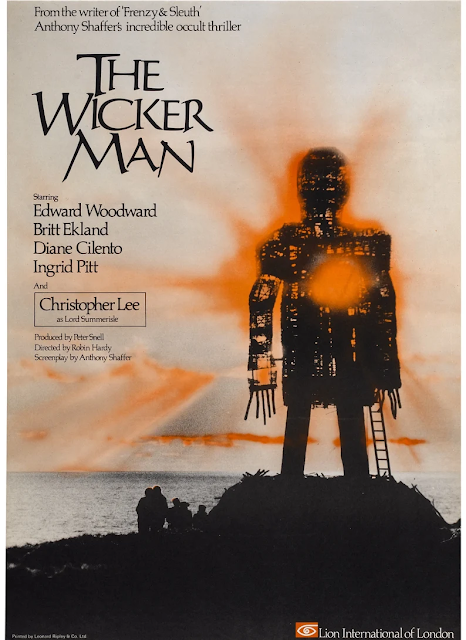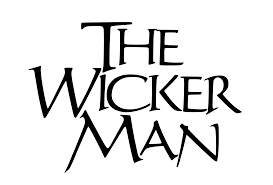This month marks the 50th anniversary-release of director Robin Hardy's The Wicker Man, a movie that Cinefantastique coined "The Citizen Kane of Horror."
The praise comes with good cause, thanks to Wicker Man's pervading uniqueness, which centers on a philosophical battle between paganism and Christianity, as filtered through an investigation of a missing girl, presumed sacrificed due to a poor, apple crop.
Scripted by Anthony (Frenzy) Shaffer (based on David Pinner's novel, "Ritual"), the unjustly edited Wicker Man went under the radar after its premiere and didn't receive U.S. exposure until 1978, and even then, averted accolades. It wasn't until the 1980s that serious acknowledgement of the film's peculiar splendor spread when a longer cut prevailed.
The movie's bright, Scottish ambiance, as captured by cinematographer, Harry Waxman, and brilliant, earthy score by Paul Giovanni, differentiate Wicker Man from other horror movies, though several of its actors were already familiar faces of the genre.
Christopher Lee portrays pagan patriarch, Lord Summerisle, and Edward Woodward, devout Christian, police inspector, Neil Howie. The men steal the show more often than not with their ardent melees.
The rest of the cast includes Britt Ekland (who renders the greatest, musical, nude sequence ever to grace celluloid); Diane Cilento, Ingrid Pitt, Lesley Mackie, Aubrey Morris, Lindsay Kemp, Gerry Cowper and a host of other varied and interesting performers.
Wicker Man's ending, of course, is its most startling aspect, but the build-up ensures its impact. The film's legendary status even spawned a remake (starring Nicolas Cage) and a sequel, The Wicker Tree, but the original remains the be-all and end-all in shocking, folk terror.
Revisit Wicker Man this December for a melodic, Yuletide chill. Like vintage wine, this one only gets better with each sardonic sip.















No comments:
Post a Comment